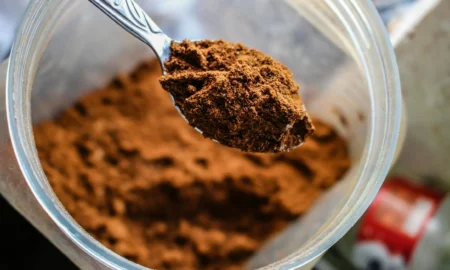Several studies have proven that taking a supplement having no more than 8 percent carb content during training can give you an ergogenic boost. Those studies, however, involved moderate training intensity, which doesn’t deplete muscle glycogen. So could taking a carb supplement aid the performance of higher-intensity training? That’s what a recent study sought to determine.1
Eight healthy weight-trained men got either a placebo or a carb supplement that provided 0.3 grams of carb per kilogram of bodyweight. They took the supplement or the placebo before exercise and after every other set. They did five progressively heavier sets of squats, with the heaviest set amounting to a weight equal to 85 percent of one-rep maximum. The final set qualified as high intensity.
It turned out that taking the carb supplement didn’t affect exercise performance, perhaps because the volume of training—five sets of squats—wasn’t enough to make significant inroads into muscle glycogen stores. Another possibility is that while muscle glycogen was affected by the exercise, it wasn’t the limiting factor in lower-volume, high-intensity training. The researchers didn’t take measurements of glycogen before and after the exercise. The more likely fatigue factors at that level of exercise were the depletion of muscle phosphocreatine and a rise in muscle acidity, both of which everybody knows cause fatigue during high-intensity training.
Those who do high-intensity, lower-volume training would be more likely to get an ergogenic boost from supplemental creatine and beta-alanine. The creatine would maximize muscle creatine levels, and the beta-alanine would increase intramuscular carnosine, thus lowering the muscle acidity that training generates. Does that mean carbs are useless for this style of training? Not by a long shot. As the authors note, not getting enough dietary carbs would deplete muscle glycogen levels after a few days, which would adversely affect training intensity and could lead to premature muscle fatigue.
That would affect high-intensity training only, however. During moderate- or lower-intensity training, the body could adapt to other fuels, such as fat.
Kulik, J.R., et al. (2008). Supplemental carbohydrate ingestion does not improve performance of high-intensity resistance exercise. J Str Cond Res. 22:1101-1107. IM




















You must be logged in to post a comment Login